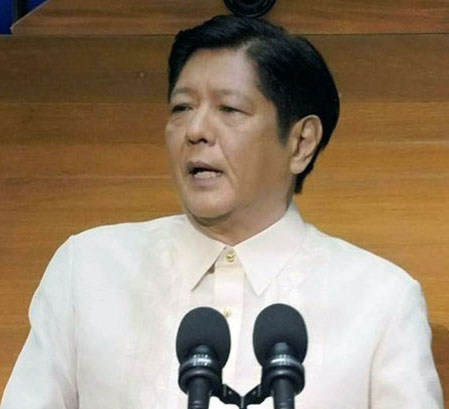
-
President Ferdinand Marcos Jr. will focus on developing the Philippines’ railway system as he continues the “Build, Build, Build” infrastructure program begun by his predecessor
-
Marcos, in his first State of the Nation Address on July 25, vowed to make infrastructure development a priority with a budget of 5% to 6% of GDP, driven by his goal to “Build Better More”
-
Airports will be upgraded and more international airports built to help decongest Ninoy Aquino International Airport
-
The President said his administration will not suspend any ongoing projects and will “continue to study the proposals that have been made”
-
Marcos pushed for amending the Build-Operate-Transfer Law as he highlighted the importance of public-private partnership projects
President Ferdinand Marcos, Jr. will continue his predecessor’s “Build, Build, Build” infrastructure program with a new focus on developing the country’s railway system while at the same time upgrading airports and building new ones.
“We shall confidently build on this firm foundation established by my predecessor. As it is in building an edifice. We must keep the momentum. And aspire to ‘Build Better More’,” Marcos said during his first state of the nation address on July 25.
“It is clear in our mind that railways offer great potential as (they) continue to be the cheapest way of transporting goods and passengers,” he added.
Marcos noted various rail projects nationwide that are at various stages of implementation and with a combined cost of P1.9 trillion.
He said the current administration is committed to finishing the current investment projects, including approved railways projects such as the North-South Commuter Railway System, the 33-kilometer Metro Manila Subway Project, the 147-km North-South Commuter Railway System, the 12-km Light Rail Transit Line 1 Cavite Extension (LRT 1), the 23-km Metro Rail Transit (MRT 7), and the Common Station that will connect LRT-1, MRT-3, and MRT-7.
Beyond the National Capital Region, Marcos noted the 102-km Mindanao Railway Project (MRP); the Panay Railway Project; and the Cebu railway system. There was no mention of the Subic-Clark Railway Project.
Earlier, Transport Undersecretary for Railways Cesar Chavez said loan agreements for three projects – MRP, Subic-Clark Railway Project, and Philippine National Railways’ South Long-Haul Project – are now considered “withdrawn” after the Chinese government failed to act on the funding requests by the previous administration.
To boost the tourism industry, Marcos said part of his plans is to upgrade existing airports and create more international airports to help decongest the bottleneck in the country’s main gateway, Ninoy Aquino International Airport.
The government will also “continue to improve our roads and transportation systems in key cities throughout the country” through various projects such as the Cebu Bus Rapid Transit, Davao High-Priority Bus System, Ilocos Norte Transportation Hub, and the El Nido Transport Terminal.
“My order to the Department of Transportation or DOTr is really very simple: full speed ahead! Improving our railway system, along with modernizing existing airports and seaports, will maximize our strategic location in the Pacific. And connect our many islands.”
In response to Marcos’ marching order, Transport Secretary Jaime Bautista in a statement vowed to prioritize the enhancement of various airports and elevate them to global standards.
“We will build upon the dozens of aviation-related projects completed in the past administration and identify areas for technical upgrade to allow them to enhance their operational capabilities,” Bautista said.
“The President’s order to the DOTr is clear – it’s full speed ahead for our transport projects,” he added.
Marcos said infrastructure development “is of primary importance as it is a necessary element to improve many other sectors – to include agriculture, tourism, general economic activity, and even to governance.”
The new administration will not suspend any of the ongoing projects “as those have already been shown to be of benefit to the public that they serve” and that he will “continue to study the proposals that have been made,” Marcos also announced.
He added that infrastructure development spending will be sustained at 5% to 6% of the country’s gross domestic product.
He noted that public-private partnerships will also “offer great potential for that expansion in infrastructure development and innovation.”
In line with this, one of 19 proposed measures is to amend the Build-Operate-Transfer (BOT) Law to improve the implementation of PPP programs and align the desired outputs and outcomes with the strategic development targets of the country.
The amendments, he said, would address the ambiguities in the existing law and the bottlenecks and challenges affecting the implementation of the PPP program.
Marcos added that amending the BOT Law would create a “more competitive and enabling environment” for PPPs. – Roumina Pablo




